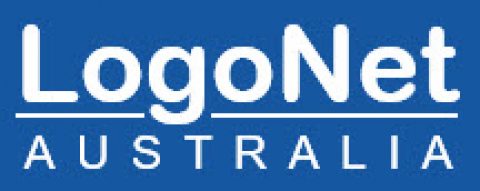Local Government across Australia is playing a key role in the national efforts to stem the spread of COVID-19 and to manage the enormous health, social and economic impacts on local communities – especially those that were so recently ravaged by fires and floods. Working closely with federal and state governments, councils are developing and implementing policies to support social distancing while maintaining essential services, protecting community and staff safety and where possible easing some of the financial pressure on local businesses and residents.
It isn’t possible to detail all the initiatives undertaken by individual councils, but some key announcements and links made by Local Government Associations, state local government agencies, professional and other council groups are outlined below. A link to the Australian Government’s infrastructure support program for councils is also included.
LGiU Australia has also started publishing a regular Global-Local Pandemic Bulletin, with updates relating to councils and coronavirus. These bulletins include content from England, Ireland and Scotland as well as Australia. This material is normally available only to LGiU Members but is being provided free of charge during the crisis. The bulletins can be accessed by signing up via the LGiU Australia website. LGiU has also developed a Councils and corona resource page which is available free after signing up.
Please note: this is a brief summary of local government sector and related responses as at 31 March 2020 (updated 11 July 2020) to the COVID-19 crisis and is not intended to be a comprehensive overview. In addition the situation continues to change rapidly; the links outlined below may become quickly outdated, so no responsibility is taken for the accuracy of this material. Everyone viewing this page should also visit the relevant health department and other sites relating to COVID-19 nominated by governments in each jurisdiction.
National
New South Wales
- Councils and the Coronavirus (COVID-19), Local Government NSW (LGNSW): advice on the virus and the role of local government in helping to ensure community safety. LGNSW, the New South Wales Local Government, Clerical, Administrative, Energy, Airlines & Utilities Union (USU), Local Government Engineers Association (LGEA) and Development and Environmental Professionals Association (depa) have also adopted a Joint Statement to provide guidance to Local Government employers and employees on how to respond to the Coronavirus (COVID-19) pandemic.
- COVID-19 Local Government Resources, NSW Office of Local Government: the state government’s resource page for councils with information on legislative changes relating to council elections and meetings, regulatory advice, information and resources, planning, continuity and recovery plan templates, quick links to key pages on other government websites and the latest COVID-19 related OLG Newsletters and media releases.
- Covid-19 Resource Centre, Local Government Professionals NSW: provides a range of resources for NSW councils, including relevant Office of Local Government circulars, media releases and other resources.
Northern Territory
- COVID-19 Information and Resources for Members, Local Government Association of the Northern Territory (LGANT): provides a range of links and other information for member Councils.
- COVID-19 Support for Local Government Sector, Northern Territory Government Minister for Local Government: Outlines initiatives announced by the Territory government to support Local Government.
- LGANT President COVID-19 Circular (13 March 2020), Local Government Association of the Northern Territory (LGANT): describes LGANT’s response to the crisis and provides advice to members on COVID-19 and the role of Local Government in helping to ensure the safety of staff and communities and plan for the continuation of service delivery.
Queensland
South Australia
- COVID-19 – Information for LGA members, Local Government Association of South Australia (LGASA): information for members only – requires log-in.
- Public Health Emergency Powers, Government of South Australia Department of Planning Transport and Infrastructure: describes the steps taken by the State Government to ensure councils can continue to operate during the COVID-19 emergency.
Tasmania
- COVID-19, Local Government Association Tasmania (LGAT): links to a range of resources for Tasmanian Councils.
- COVID 19 and LGAT Updates, Local Government Association Tasmania (LGAT): outlines important announcements regarding LGAT operations and impacts of COVID-19.
- COVID-19 Resources, Local Government Professionals Australia – Tasmania: contains links to a number of pages relevant to Tasmanian Councils
Victoria
Please note that some of the information below predates the reimposition from 8 July 2020 of Stage 3 Stay at Home Restrictions in metropolitan Melbourne and the Mitchell Shire. Please visit the relevant Local Government Victoria and Health and Human Services pages for the latest information.
Western Australia
- Coronavirus update from LG Professionals WA, Local Government Professionals Australia – WA: summarises the response by LG Professionals WA, with links to key WALGA and State Government pages.
- COVID-19 – Information and Resources for Local Government, Western Australian Local Government Association (WALGA): quick links to various resource pages including State Emergency Declarations, maintaining business systems and governance, council initiatives to support communities and current COVID-19 news items relevant to Local Government. A more detailed information page for Local Government can be found here.
- Covid-19 responses, Government of Western Australia, Department of Local Government, Sport and Cultural Industries: provides information on legislative changes to the Local Government Act and regulations relating to COVID-19, as well as a list of relevant local government alerts, circulars, media statements and useful information and resources..
- COVID-19 information for business, industry and local government, Government of Western Australia, Department of Health. The Local Government section contains links to a number of fact sheets and other material regarding Covid-19 which are relevant to Local Government.

